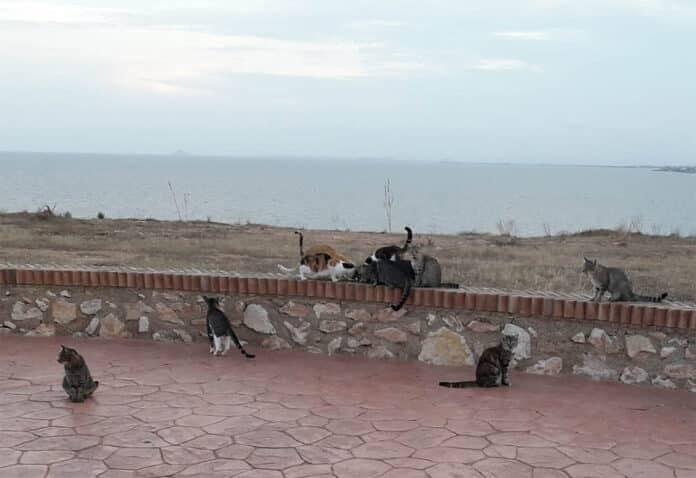
Spanish
Dutch
French
German
Norwegian Bokmål
Polish
Swedish
Despite an emergency plan launched in July by the Orihuela Council to manage the growing number of stray cat colonies in Montepinar and Orihuela Costa, volunteers along the coast say they have been abandoned.
Many are covering the full cost of food, medical treatment, and sterilization personally, with little to no support from local authorities, with one woman selling her apartment to allow her continued support to the colonies.
Eight months ago, the Council acknowledged an uncontrolled rise in cat colonies throughout the municipality, many of which were being fed without permission.
This, according to Health Councilor Irene Celdrán, created a significant public health issue, affecting residents both outside and inside their homes. Authorities initially promised to prioritize Orihuela Costa and Montepinar before expanding efforts to other districts.
Isabel Befán, president of the Orihuela Costa Feline Colonies Association (Ascfoc), criticized the City Council for failing to assist with sterilizations. She argues that the council is neglecting its responsibilities under Spain’s national Animal Welfare Law and regional regulations, which prioritize the continuous implementation of the CER method (capture, sterilization, return) to control cat populations.
Although Orihuela received €12,413 in 2024 from the Alicante Provincial Council to support this effort, Befán claims that only 28 cats on the coast have been sterilized since October—despite there being over 1,000 of them across 60 colonies.
With mating season underway, volunteers report they’ve received no assistance in the last four weeks, forcing them to bear all related costs themselves.
Concerns about malpractice have also arisen. The City Council selected a veterinary clinic nearly 40 km away, which volunteers claim treated the animals poorly. Cats returned in unhygienic conditions, some with serious post-surgical complications.
Two animals required urgent care, while others vanished after being released back into their colonies.
Despite filing formal complaints over four months ago, the Council has not responded.
Additionally, Ascfoc has asked for bilingual signage (Spanish and English) to deter unauthorized feeding by the area’s international residents. However, only temporary paper signs have been provided.
While the Council has issued 750-euro fines for unauthorized pet food storage, volunteers argue that enforcement should be matched with support. Though 70 local feeders now have official cards, Ascfoc insists the Council must fulfil its legal duties—pointing out that neighbouring municipalities like Torrevieja and Pilar de la Horadada offer significantly better support for managing cat colonies.
Spanish
Dutch
French
German
Norwegian Bokmål
Polish
Swedish











